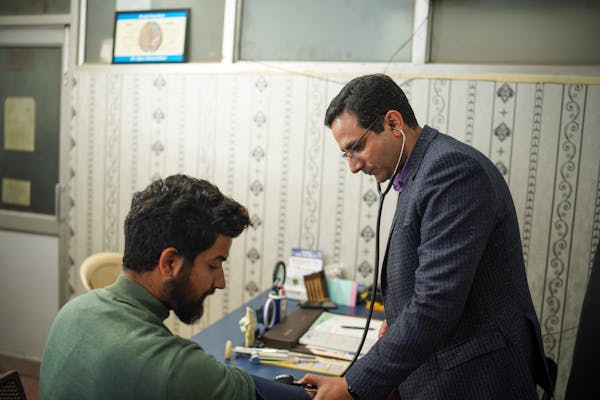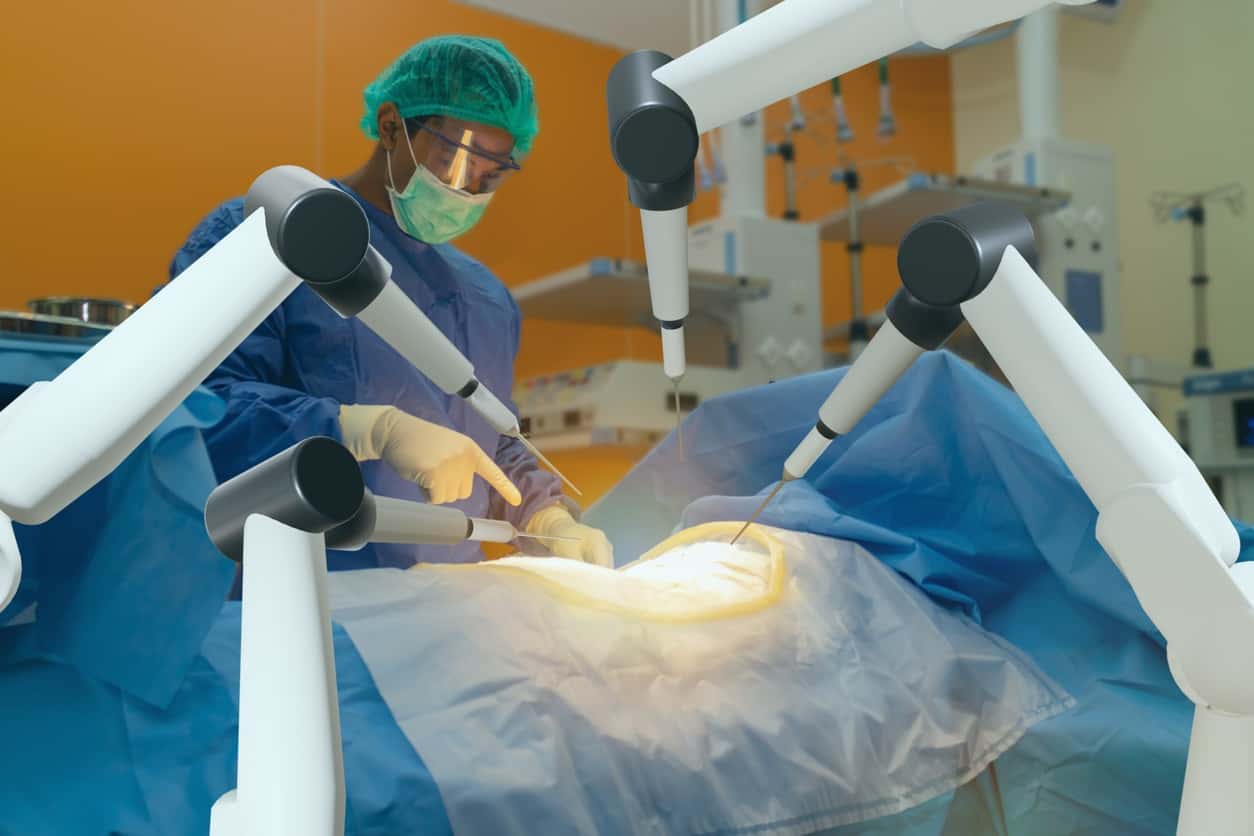
Innovative Therapies Transform Lymphoma Treatment
The State of Lymphoma Treatment
Lymphomas are a common type of blood cancer that affect a particular type of white blood cell called lymphocytes. Though there are dozens of subtypes of lymphoma, the two most common categories are Hodgkin and Non-Hodgkin lymphoma. Currently, the standard treatments for lymphoma include chemotherapy and radiation, and in some cases, stem cell transplants.
The Advent of Innovative Therapies
Recently, there has been a rapid acceleration in the advancement of innovative therapies that have transformed the treatment landscape for people living with lymphoma. CAR T-cell therapy, which involves genetically modifying a patient's immune cells to target cancer cells, has been approved by the FDA for the treatment of certain types of Non-Hodgkin lymphoma. Additionally, antibody-drug conjugates and checkpoint inhibitors have also shown promise in clinical trials as potential therapies for lymphoma.
The Future of Lymphoma Treatment
The advent of these innovative therapies for lymphoma is providing new hope for patients and their families. As research continues, it is likely that more targeted and personalized treatments for lymphoma will emerge, ultimately leading to better outcomes for patients.
If you or someone you know has been diagnosed with lymphoma, it is important to stay informed about new treatment options and to work closely with your healthcare team to determine the best course of treatment for your specific situation.
Personalized Medicine: A New Era in Lymphoma Treatment
Traditional lymphoma treatments are based on broad classifications of the disease, such as subtype and stage. However, thanks to advances in technology, researchers have been able to identify more specific biological markers that can help inform individualized treatment plans for patients.
Personalized medicine, also known as precision medicine, involves the use of an individual's unique genetic profile and other biological data to tailor treatment decisions for their specific disease. In lymphoma, personalized medicine approaches are being developed to help match patients with the most effective treatments based on their genomic and proteomic data.
The Importance of Research and Clinical Trial Participation
In order to continue making progress in the fight against lymphoma, it is crucial to support ongoing research efforts and clinical trials. Clinical trials provide patients with access to the latest treatments and are a key component of discovering new therapies for lymphoma.
Not only do clinical trials provide hope for patients who have exhausted standard therapies, but they also help to advance the field of lymphoma treatment overall. By participating in clinical trials, patients can help contribute to the development of new and better treatments for future generations.
The Role of Patient Support in Lymphoma Treatment
Receiving a lymphoma diagnosis can be overwhelming, and the treatment journey can be long and challenging. That's why it's essential for patients to have access to support from their healthcare team, loved ones, and various patient advocacy groups. These support systems can provide patients with valuable information and resources, help manage treatment side effects, and offer emotional support throughout the entire process.
Furthermore, there are numerous patient support organizations dedicated to providing lymphoma patients with access to resources such as financial assistance, transportation to treatment, and support groups with fellow patients. These resources can make a significant difference in the quality of life and overall outcomes for patients undergoing lymphoma treatment.
The Importance of Early Detection in Lymphoma
Lymphoma, like many types of cancer, can often be successfully treated when detected early. This is because early detection means the cancer has not yet spread to other parts of the body, making it easier to treat with less aggressive therapies. Unfortunately, lymphoma symptoms, such as enlarged lymph nodes, can be mistaken for other, less serious conditions, leading to delayed diagnosis.
Regular screenings and symptom awareness are essential in detecting lymphoma in its early stages. For example, people with a family history of lymphoma or other blood cancers may be at greater risk and should speak with their healthcare provider about appropriate screenings. Additionally, being aware of potential warning signs, such as unexplained weight loss or fatigue, could help identify lymphoma early and improve the chances of successful treatment.
The Importance of Multidisciplinary Care in Lymphoma Treatment
Lymphoma treatment often involves a multidisciplinary team of healthcare providers, including medical oncologists, radiation oncologists, hematologists, and other specialists. Each member of the team brings a unique perspective and set of skills to the table, helping to ensure that patients receive the most comprehensive and effective care possible.
Furthermore, each patient's case is unique, and a multidisciplinary approach allows for a personalized treatment plan that takes into account the individual's specific disease subtype, stage, and other factors that may impact their care. A team-based approach can also help manage treatment side effects and any other complications that may arise during treatment.
For these reasons, it's crucial that lymphoma patients work with a healthcare team that is experienced in treating the disease and is committed to a multidisciplinary approach to care.
Supporting Access to Lymphoma Treatment
Access to lymphoma treatment is a crucial issue for patients, particularly those who may face financial, geographical, or other barriers to care. Many innovative therapies for lymphoma can be particularly expensive, and insurance coverage for these therapies can be limited or nonexistent. Additionally, patients in rural or remote areas may face challenges accessing specialized lymphoma treatment centers.
To address these issues, there are a variety of resources available to help patients access the care they need. Patient advocacy organizations and social workers can provide assistance with insurance coverage, financial support, and help navigating the treatment process. Furthermore, telemedicine and other technologies can help connect patients to specialists and treatment facilities, regardless of geographic location.
As the field of lymphoma treatment continues to evolve, it's essential to ensure that all patients have access to the latest and most effective therapies, regardless of their circumstances.
Final Notes
In conclusion, lymphoma treatment is continually evolving, and there are many promising therapies on the horizon. To summarize the key points discussed in this article:
- The standard treatments for lymphoma include chemotherapy, radiation, and stem cell transplants.
- Innovative therapies, such as CAR T-cell therapy and antibody-drug conjugates, are transforming the treatment landscape for people living with lymphoma.
- Personalized medicine approaches are being developed to help tailor treatment decisions for patients based on their genomic and proteomic data.
- Patient support and involvement in clinical trials are critical in providing lymphoma patients with access to resources and the latest treatments.
- Early detection is essential in improving the chances of successful treatment, so regular screenings and symptom awareness are necessary.
- A multidisciplinary, team-based approach is beneficial for providing comprehensive and effective care to lymphoma patients.
- Access to lymphoma treatment is a crucial issue, and there are many resources available to ensure patients can access the care they need.
As we continue to advance in the treatment of lymphoma, it's essential to stay informed and work with healthcare providers to determine the best individualized treatment plans. For those already living with lymphoma, there is hope with the advent of innovative therapies, patient support, and multidisciplinary care. With continued research and advocacy efforts, we can improve outcomes and ultimately find a cure for lymphoma.
References:
- American Cancer Society. (2021). What is Lymphoma? Retrieved October 29, 2021, from https://www.cancer.org/cancer/lymphoma.html
- Leukemia & Lymphoma Society. (2021). Precision Medicine Initiative. Retrieved October 29, 2021, from https://www.lls.org/research/precision-medicine-initiative
- Skarbnik, A. P., & Smith, S. M. (2021). Updates on the Diagnosis and Treatment of Lymphoma. American Journal of Hematology/Oncology, 17(4), 5–13. Retrieved from https://www.ajho.com/article/update-on-the-diagnosis-and-treatment-of-lymphoma
Additional References: Recent advances in the treatment of Lymphoma

